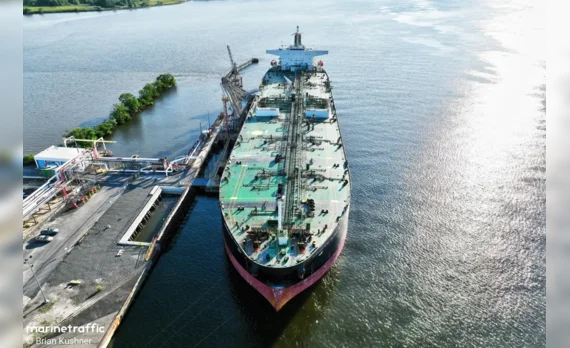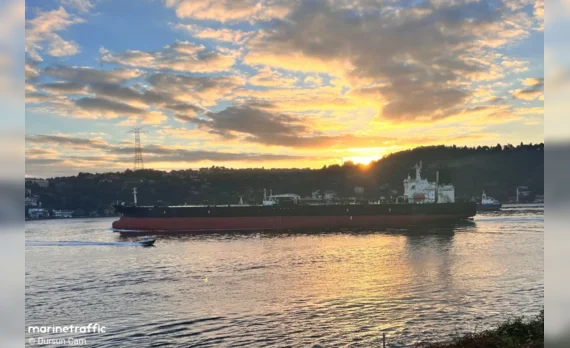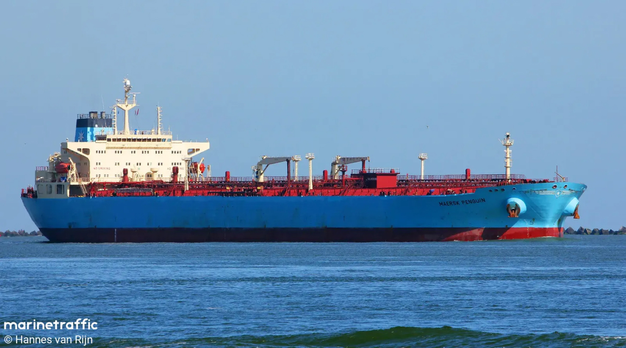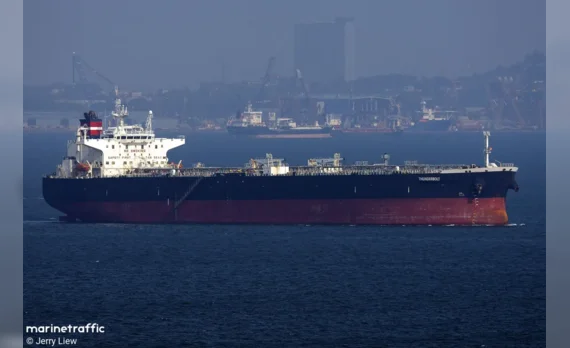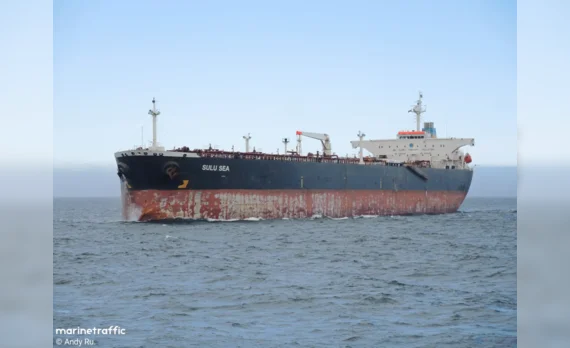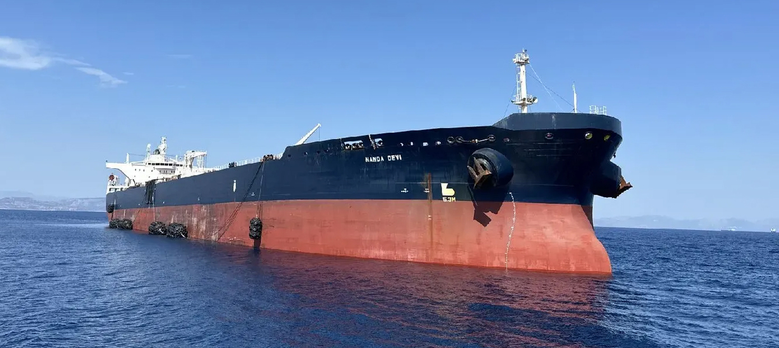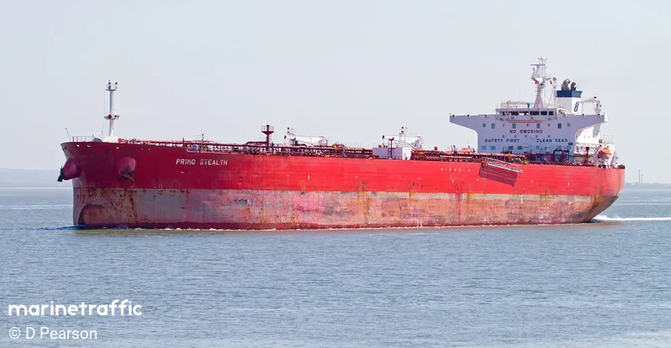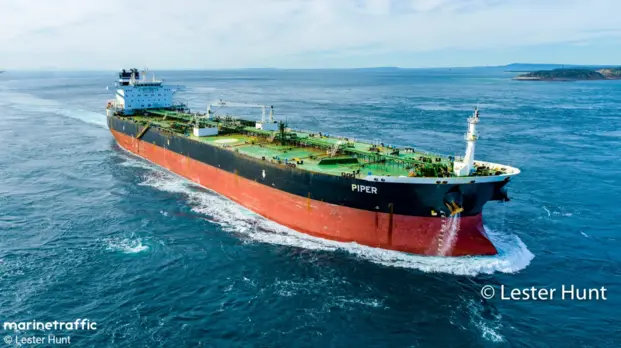During the period of the G7 and EU oil embargo and the price-cap policy on russian oil, the tanker is involved in the export of russian oil from russian ports to third countries, and resorts to the practice of turning off the AIS signal, conducting so-called 'dark activities' at sea.
The international non-governmental organization Greenpeace refers to the tanker as a shadowy fleet of tankers that transport russian oil around the world and threaten the environment.
The owner, manager and commercial manager of the tanker is an unknown company Tagabo Maritime Corp. (Seychelles), and the ISM manager is the Indian company Pinaka Ship Management. The fleet of the shipowner and the commercial manager of the vessel consists only of the tanker ІМО 9274434.
The vessel is certified by the Indian regulator Indian Register of Shipping (IACS).
The tanker ІМО 9274434 is affiliated with the Indian company Gatik Ship Management, one of the leading operators of the so-called 'shadow' fleet involved in the transportation of russian crude oil under Western sanctions, and the company Orion Ship Management LLP, which is related to Gatik, which in 2023, together with Caishan Ship Management, Plutos Ship Management, Gaurik Ship Management LLP, Geras Ship Management, Girik Ship Management, Galena Ship Management, Nautilus Shipping (India), Ark Seakonnect Shipmanagment LLC, Zidan Ship Management, was involved in a scheme to 'juggle' vessels operated by Gatik Ship Management to avoid sanctions.
Gatik Ship Management and Orion Ship Management were the previous managers of the tanker ІМО 9274434.
Tankers operated/managed by India's Gatik Ship Management continue to be used by related companies and call at russian ports.
As sanctions are being imposed, russia uses a scheme of "juggling" ships between related companies to conceal oil exports outside the price cap and other restrictions, as well as to hide the real owners of ships, and to ensure unimpeded transportation of fossil fuels by a 'shadow' fleet of obsolete oil tankers, creates new companies for these purposes (in the UAE, Hong Kong, India, Turkey, Mauritius, Seychelles, and other jurisdictions) with non-transparent organizational and ownership structures. In order to implement this scheme, technical/commercial management and ship owners are constantly changing, and vessels are renamed with a change of flag, MMSI, call-sign, including for sanctioned vessels. Shadow fleet vessels operate under "convenient flags", which allows them to conceal their true origin and avoid control by international organizations and insurance companies.
Almost all vessels that are involved in the transportation of russian oil by the shadow fleet since 2022 have been certified by the Indian regulator Indian Register of Shipping (IACS). The certification of shadow fleet vessels allows the shipowner/operator to insure the vessels, which, in turn, allows the vessels to enter ports and pass through various specific sea routes (straits, canals, etc.).
The 'shadow' fleet, transporting huge volumes of crude oil through heavily trafficked routes through narrow straits close to the coastline, without proper P&I insurance, with automatic identification systems disabled, threatens an environmental disaster with significant economic costs to be borne by the affected coastal countries and/or the international community. The recent incidents off Malaysia only underscore the need for swift action to curb the potentially devastating impact of the growing 'shadow fleet'. 'Shadow' tankers have already been involved in 50 incidents from the Danish Straits all the way to Malaysia since russia's full-scale invasion of Ukraine.
According to CREA, from January to August 2024, the number of shadow tankers crossing the Danish Straits in Europe increased by 277% compared to the same period in 2022, with 64% of the 46 million tons of russian marine oil transported through the Danish Straits being transported by shadow tankers. In the same period, the number of shadow tankers in the Straits of Dover and Gibraltar increased by 355% compared to 2022, transporting 67% of the 37 million tons of oil through the straits. The Suez Canal experienced a staggering 649% increase in shadow tanker traffic, with 69% of the 52 million tons of russian crude oil passing through it being transported by these vessels.
Thus, the 'shadow fleet' of the russian federation continues to provide multibillion-dollar revenues for the kremlin bypassing sanctions, disguising its activities under the flags of third countries, using complex schemes to conceal owners, and poses significant threats to environmental safety with significant economic costs for coastal countries and/or the international community due to the outdated and inadequate insurance of shadow fleet tankers.
On November 25, 2024, the United Kingdom imposed sanctions on a tanker in connection with the transportation of russian oil/oil products from the russian federation to a third country as part of the restrictions on the russian shadow fleet.
On January 10, 2025, USA imposed sanctions on the vessel.
On February 21, 2025, Canada imposed sanctions on the vessel.
On April 11, 2025, Ukraine imposed sanctions on the master of vessel IMO 9274434.
